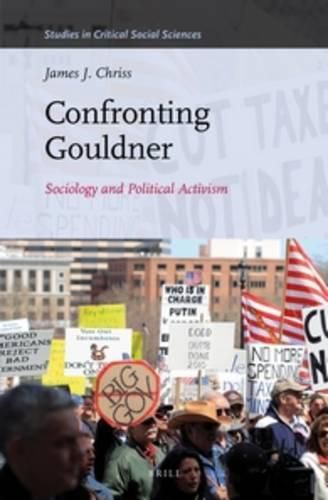Readings Newsletter
Become a Readings Member to make your shopping experience even easier.
Sign in or sign up for free!
You’re not far away from qualifying for FREE standard shipping within Australia
You’ve qualified for FREE standard shipping within Australia
The cart is loading…






Alvin W. Gouldner (1920-1980) was a leading sociologist of his era who provided groundbreaking analyses in the areas of industrial sociology, critical sociological theory, ideology, reciprocity, and class analysis. Even as a self-avowed radical sociologist, Gouldner was unable to maintain allegiance to any particular theorist or theoretical school, for doing so could lead to theory becoming blind partisanship leading to unreflective and sometimes destructive practices (e.g., the problem of the communist dictator). In Confronting Gouldner James J. Chriss confronts the larger issue of the place of critical theory, and specifically Marxism, in framing the perspective of sociology as political activism. Through this confrontation with Gouldner, the author explores the implications of critical theory as it relates to social justice, marriage and family, religion, political activism, public sociology, and deviance and crime.
$9.00 standard shipping within Australia
FREE standard shipping within Australia for orders over $100.00
Express & International shipping calculated at checkout
Alvin W. Gouldner (1920-1980) was a leading sociologist of his era who provided groundbreaking analyses in the areas of industrial sociology, critical sociological theory, ideology, reciprocity, and class analysis. Even as a self-avowed radical sociologist, Gouldner was unable to maintain allegiance to any particular theorist or theoretical school, for doing so could lead to theory becoming blind partisanship leading to unreflective and sometimes destructive practices (e.g., the problem of the communist dictator). In Confronting Gouldner James J. Chriss confronts the larger issue of the place of critical theory, and specifically Marxism, in framing the perspective of sociology as political activism. Through this confrontation with Gouldner, the author explores the implications of critical theory as it relates to social justice, marriage and family, religion, political activism, public sociology, and deviance and crime.